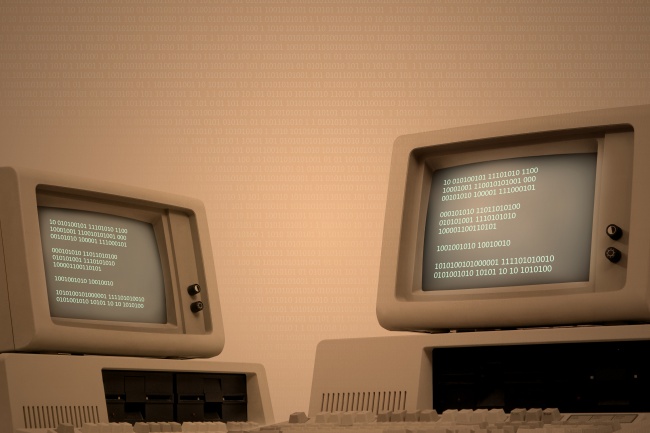How Blockchain Technology Can Give A Boost to the Healthcare Industry
The healthcare sector probably is the slowest in implementing horizontal innovations. This situation is the reason both data and economic flows in the industry are complicated. A lot is to blame for this unfortunate situation. However, the intricate approach of combining old and new tech in the sector and the numerous regulations take the crown.
Medical data is not of the ordinary kind; regardless of where it is stored, it can only be accessed by a particular provider. Even patients are alien to these records. However, centralized control is also an incentive for hacking. Worse still, emerging data technology is creating even more significant vulnerabilities that lead to great loses, and human error compound the problems of data breach even further.
Hospitals show preference for Precision Medicine model, which is data-driven and personalized. The premise of this approach is that comprehensive data collection and storage about an individual helps get better outcome during treatment. Even government and research institutions encourage data sharing that has given forth to the national health information databases in existence now. While such ventures are great, they expose the data collected since the storage methods are not foolproof just as yet.

Blockchain in Healthcare: Key Benefits
The existing data management systems are too porous. Retrieving data takes unnecessarily long, and this makes simple hospital procedures to delay as a result.
Blockchain can ease this situation by improving the efficiency with which patients access, share, and control per data. Blockchain can also help create a unified standard for data exchange.
Some of the benefits of this technology to the health sector are:
- Data integrity
- Enhanced data security
- Real-time access
- Encryption for personal data protection
- System interoperability
- The inclusion of patient-generated data from IoT
- Better data management
- Higher integrity of clinical trials data
- Improved individual health services
- Reduced costs of data audits, reconciliation, and regulatory compliance.
Blockchain in Healthcare: Use Cases
Blockchain has the potential to improve the entire lay of the healthcare land from administrative procedures, improving efficiency in processing claims, heightening cooperation among the various entities in the sector and improving billing procedures. Here are some innovations already in practice:
Smart Contracts
Smart contracts can define the conditions for sharing and accessing personal data. For instance, a smart contract can determine who can access information. It also can keep the data away from a malicious third party or the general public. When a request for access comes in, smart contracts can automatically validate the user’s credibility and the extent of data accessible to such a user.
Improving Medical Reconciliation
The American Journal of Managed Care reports that about 77% of patients have a bad experience with medication reconciliation. Often, such discrepancies arise from improper data exchange between pharmacies and health care providers and the electronic health records (EHR) connecting them. Receiving prescriptions for drug combinations that are risky in the end is just one of the possibilities.
The blockchain can coordinate prescriptions and create better coordination among all parties in the caregiving environment. Besides, it will install measures that cross-check prescriptions and keep dangerous drug combinations from the patients’ treatment regimen.
Detecting Medical Fraud
On average, medical insurance fraud bleeds the economy of US$ 80 billion every year; a situation that messes billing cycles and increases insurance premiums. It, however, is a situation that blockchain is addressing. By avoiding deletion or alteration of information, blockchain is elimination the fraud that off-chain electronic documents often permit.
Licensing and Providing Credentials to Healthcare Providers
The strides in technology have made most services readily available online. One such service is telemedicine. The multiple apps that dot the internet now mean that you can sign up for a therapy session by a click of the button. However, it’s essential to verify the credentials of the practitioner who gives you the service.
The blockchain feature that allows the licensing authority to create shatterproof, secure and up-to-date database makes it the apt solution for the concern above.
The Traceable Supply Chain for Drugs
Counterfeiting prescription drugs is a big headache for pharma. The WHO estimates that the public spends some US$ 30 million per year on fake drugs. This proportion includes about 65% of the prescriptions drugs that go to treating malaria and bacterial infections. The chain-of-custody log that you can create on the blockchain can eliminate counterfeiting.
A supply system hedged on the blockchain is transparent and allows industry players to trace the origin and movement of products on the chain. Such a system can also detect unusual orders.
Blockchain in Healthcare: Adoption Challenges
The benefits of heightened data sharing through blockchain technology are numerous. However, practitioners need to agree on whether to go with either permission-less or permission-based ledger. The former allows for a faster adoption process but may be constrained by poor scalability. The latter, on the other hand, has a shorter response time but expends more computing power. The decision on which to use, as such depends on the priorities of the organization adopting blockchain.
Blockchain’s other limitation is its inbuilt processes of storing data. Since all data stored in the system need to be standardized, free-form submissions such as clinical notes and patients’ charts may have large transaction sizes, which may compromise the performance of the network.
Besides, the grey areas in the regulatory landscape of blockchain are so vast, a factor that makes full adoption in the healthcare sector a little tricky. It may require healthcare providers to take the lead role in setting standards that are sector-specific.
Despite these mentioned challenges, blockchain remains the best answer to healthcare’s stagnated horizontal innovation. However, with almost six in every ten healthcare providers having adopted or moving towards adopting some element of blockchain before 2020, there is much movement in the right direction.





